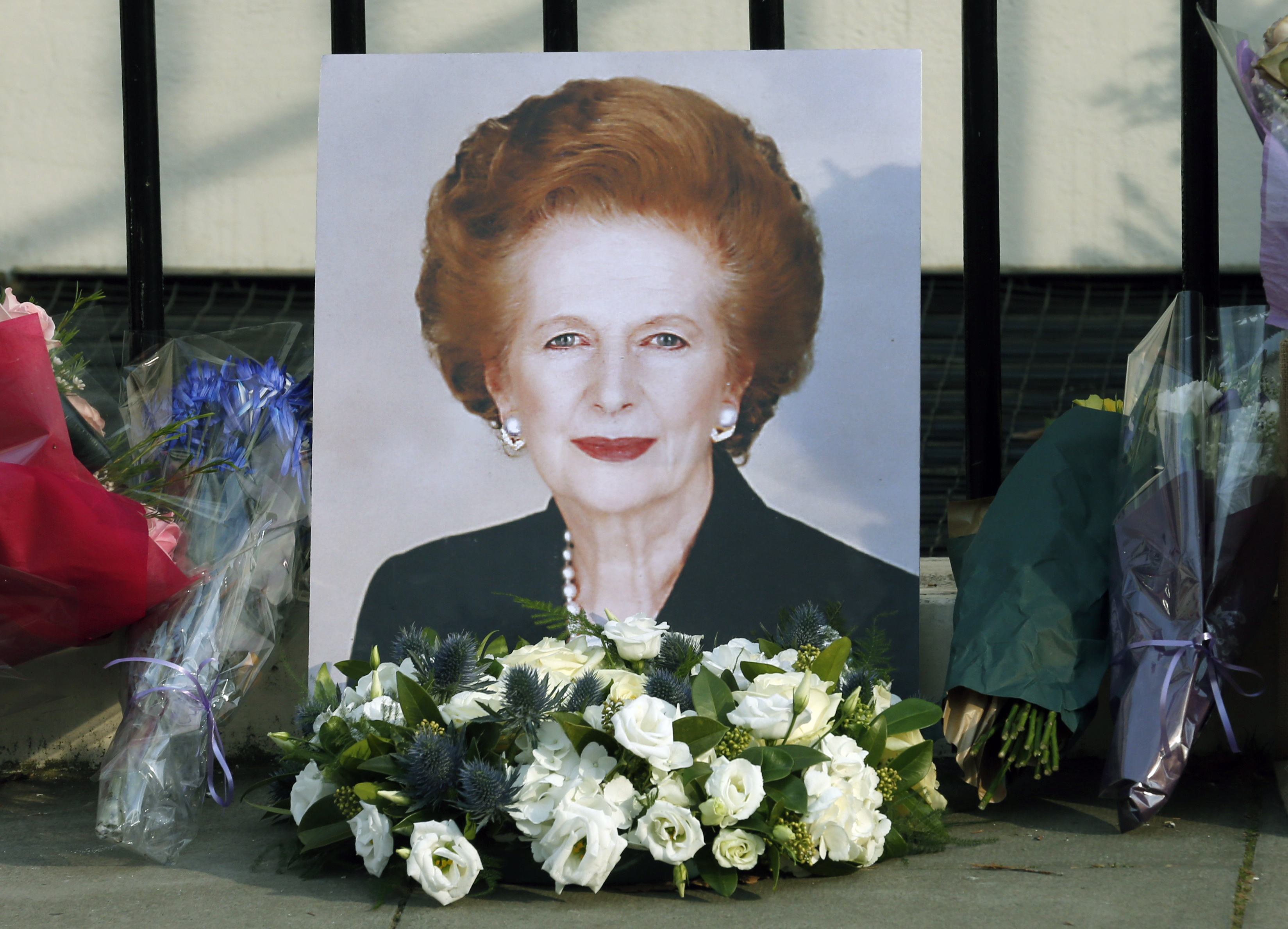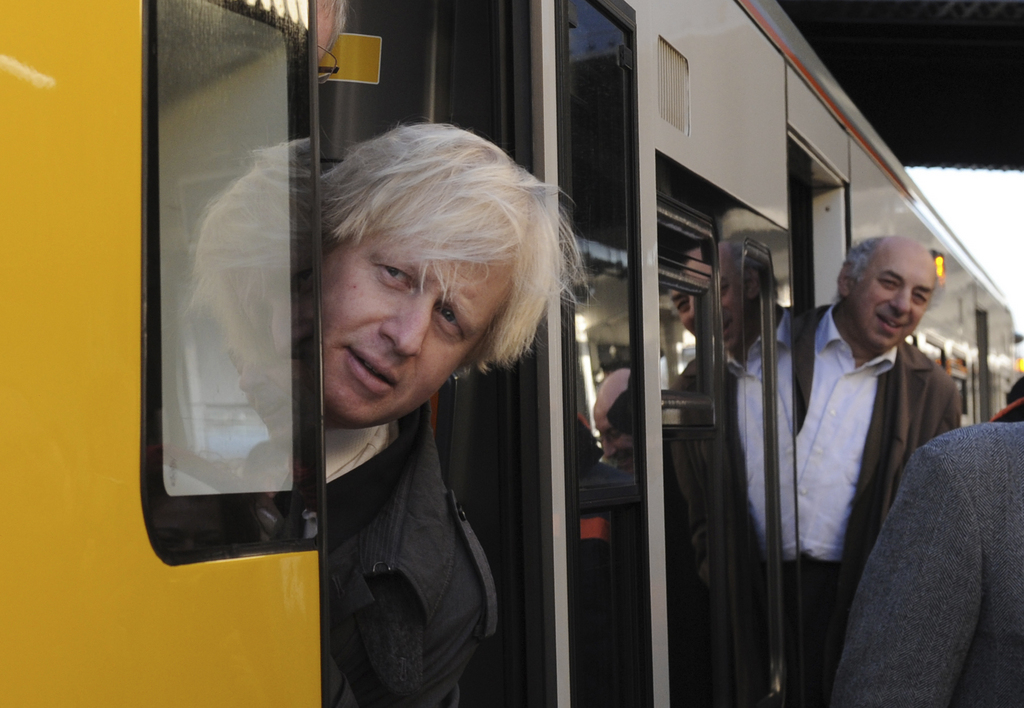‘England won, the United Kingdom lost’

Swiss newspapers are as surprised as everyone else by the Conservative victory in the British general election. And like everyone else they are concerned by the uncertainty over whether Britain will stay in the European Union – and even hold together as a country.
“David Cameron has triumphed beyond anything anyone could imagine, giving himself space by knocking out his opponents. Alone in the ring, he lifts his fists towards the sky,” wrote the poetic editorialist of Le Temps in Geneva on Saturday.
But a day after the leader of the centre-right Conservatives (Tories) confounded polls to win the first majority Tory government since 1992, Le Temps warned that he did not have a carte blanche “because the country has woken up divided”.
It pointed to Scotland, where nationalists won 56 of 59 Scottish seats, and Wales and northern England which remained Labour bastions. “The Conservative victory is therefore narrowed to an England reduced to well-off regions and tempted by isolationism.”
Cameron’s victory means Britain will face a vote which he has promised by the end of 2017 on continued membership of the EU. He says he wants to stay in the bloc, but only if he can renegotiate Britain’s relationship with Brussels.
“What will the British decide?” asked Le Temps, whose headline was “England won, the United Kingdom lost”.
“The polls say Britain will stay in the Union by a small majority. But these are the same institutions which predicted the Conservatives and Labour would be neck and neck…”
It noted, like many analysts, that should the UK leave the EU, Scotland, which is pro-Europe, wouldn’t waste any time in organising another referendum for independence, following the one that was rejected in September 2014. It added that Wales could also be tempted – “the end of the United Kingdom!”
“Neither the City [of London] nor England nor David Cameron has an interest in this scenario. To avert it, the Prime Minister has no choice but to lead a campaign against his own people to persuade them not to give in to the temptation of a Brexit [British exit of the EU].”

More
How does Switzerland matter for the British elections?
‘Labyrinth’
The Tages-Anzeiger in Zurich raised the possibility of a “Scoxit”, predicting that the long-running conflict between London and Edinburgh would “undoubtedly intensify” after the election.
“Already in Scotland people are asking what legitimacy the Conservative government has in Scotland [where it has just one of 59 seats] to decide on Scottish concerns such as important social issues,” it said.
It added that the same thing was being asked in England about the “advancing Celtic hordes” in the Houses of Parliament.
For the Neue Zürcher Zeitung, Scottish separatism and an EU referendum were the two main challenges facing Cameron over his next five-year term. It wondered how he was going to find his way out of this “labyrinth of conflicting demands”.
“A serious discussion will now begin in the EU about concessions to London – and it’s open as to whether anything more than symbolic concessions are possible until 2017. Despite his new domestic strength, Cameron’s task will not be easy: what would London’s attitude to the EU be after an exit?” it asked.
What’s more, “with his anti-immigrant rhetoric he has also irreparably damaged relations with traditional allies in eastern Europe, Madrid has been at loggerheads with London for ages over Gibraltar, and many other EU capitals simply fail to understand Britain’s attitude towards Europe”.
Blocked negotiations
“Europe was rubbing its eyes yesterday in disbelief,” said tabloid Blick, adding that the EU was “trembling in front of King Cameron”.
“An exit of its second-largest economy would be a disaster for the Union,” it said. “While it had been hoping for a coalition of Labour and the Scottish National Party, both euro-friendly, now it has to enter into nerve-racking negotiations with Cameron.”
The Tory leader would therefore try, ahead of the vote, to renegotiate a few conditions with Brussels, “such as the free movement of people and social assistance for EU immigrants”.
Some Swiss politicians have hoped the anti-immigrant rhetoric in Britain would mean increased leverage for Switzerland in the ongoing stand-off with Brussels over the free movement of people (Switzerland resists it, Brussels insists on it).
However, Brussels was quick to nip that talk in the bud. “Britain is part of the family,” said Margaritis Schinas, European Commission spokesman, on Friday. “Switzerland isn’t.”
The Tribune de Genève pointed out that German Chancellor Angela Merkel had let it be known that she wasn’t prepared to pay any price to keep Britain in the EU.
“The most powerful woman in Europe has been very clear: hands off the principle of free movement. The 28 member states will not tolerate the Union becoming ‘self-service’,” it said.
“As a non-member, Switzerland will find it all the more difficult to squeeze any concessions out of Brussels on the free movement of people. In the worst case, the situation could be blocked until 2017.”
Election results
The United Kingdom includes England, Scotland, Northern Ireland and Wales, with England accounting for 85% of the population.
With all results declared in the 650-seat house, the Conservatives held 331 and Labour 232. The centre-left Liberal Democrats, who supported Cameron in government since 2010, were all but wiped out, reduced to eight seats from 57.
Scottish nationalists won 56 of the 59 Scottish seats, up from just six five years ago.
The anti-EU, populist UK Independence Party (UKIP) surged into third place in the overall vote tally, but disappointed its followers by managing to place first in only one district to win just a single seat.
Like Labour’s Ed Miliband, Lib-Dem leader Nick Clegg and UKIP leader Nigel Farage resigned as party leaders.

In compliance with the JTI standards
More: SWI swissinfo.ch certified by the Journalism Trust Initiative



You can find an overview of ongoing debates with our journalists here. Please join us!
If you want to start a conversation about a topic raised in this article or want to report factual errors, email us at english@swissinfo.ch.